Minnesota Inclusive Neuroscience Development Scholars (MINDS) Program
Post-Baccalaureate Research Program to Broaden the Diversity of Neuroscientists Pursuing a Doctoral Degree
MINDS is financially supported by the National Institutes of Health (R25 DA057802), the Genentech Innovation Fund, and University of Minnesota campus partners linked at the bottom of this website.
Mailing List/Contact Us Current Scholars MINDs Alumni
Mission: The mission of the MINDS program is to promote diversity, equity, and inclusion in the field of neuroscience at an early career stage. One point of attrition for individuals from marginalized and disadvantaged backgrounds is immediately after college graduation. Graduate school entry has become increasingly competitive and graduate school admissions committees require significant research experience. We believe this emphasis leads to a substantial roadblock for some individuals who have not had opportunities to gain substantial research experience. The goal of the MINDS program is to provide financial support for college graduates to conduct two years of research in a neuroscience laboratory at the University of Minnesota before pursuing a Ph.D. in neuroscience.
This laboratory research experience encourages intellectual as well as technical growth; helps build confidence in laboratory settings; and provides opportunities to obtain “deliverables” in the form of poster presentations and publications. In addition to the technical research skills, the MINDS program also provides individualized mentorship and professional skill development that will aid Scholars in becoming future leaders in the field. We aim to help individuals from marginalized and disadvantaged backgrounds submit competitive applications to neuroscience Ph.D. programs, by increasing access to meaningful laboratory research experiences and developing skills necessary to thrive in graduate school and beyond. We expect that MIND Scholars would be competitive for the Graduate Program in Neuroscience at the University of Minnesota, as well as other neuroscience graduate programs across the country.
Who is Eligible: MINDS is a post-baccalaureate research program for individuals who have obtained a B.A., B.S., or equivalent baccalaureate degree from an accredited college or university. We are particularly interested in applicants from institutions that do not provide extensive opportunities for biomedical research experience and/or specifically support students who are underrepresented in medicine and science. Aligned with NIH definitions this includes individuals who may have experience economic, educational or social disadvantage. Individuals attending Historically Black Colleges/Universities (HBCUs), Hispanic-serving Institutions (HSIs), Tribal Institutions, and any institutions that do not have doctoral degree programs in neuroscience-related biomedical sciences are encouraged to apply. All applicants must be completing their final year of undergraduate study, or have received their undergraduate degree within the past three years. We are focused on recruiting individuals from diverse backgrounds, including groups that are underrepresented in the U.S. biomedical workforce. This includes, but is not limited to: membership in any protected group (e.g. people living with disabilities, veterans), members of historically excluded groups (e.g. Black people or African-Americans; Hispanic or Latinx people; American Indian or Alaskan Native people; Native Hawaiians or other Pacific Islander people), those with economic and/or educational disadvantage such as first generation college graduates; and recipients of federal funding (either Pell grant or McNair Scholarship). Applicants must intend to pursue a doctoral degree (Ph.D.) in neuroscience; we are particularly interested in applicants interested in conducting research on the neuroscience of substance use disorders. Applicants are not required to be US citizens. International students are eligible to apply, as long as they reside in the United States at time of application. MINDS cannot sponsor visas, but can support STEM OPT exceptions for Scholars that join the program.
Competitive Applicants: To make your application to the MINDS program more competitive, your submitted materials should include information about your prior research experience(s) and/or barriers that have prevented you from obtaining research experience. If your past research experience is limited, please describe your research interests for the future. We want to know how you would benefit from the research and professional opportunities available through the MINDS program. We will select candidates who have a passion for conducting research, curiosity about neuroscience, and desire to be part of a community of like-minded peers. We want to know about your potential to successfully transition into a Ph.D. program, as well as your commitment to advancing marginalized researchers in neuroscience and your desire to serve your community through your future career.
Program Features:
Compensation & Benefits: The MINDS program hires each Scholar as a full-time employee (40 hours/week), with an annual salary of $41,000. Scholars receive a standard employee benefits package that includes medical and dental insurance. Upon joining MINDS for their first year, each Scholar receives a $1500 payment for relocation expenses. During their second year in the program, each Scholar receives $1500 in career development funds that can be used for graduate school application fees, travel to scientific conferences, or other professional expenses.
Research: MIND Scholars will spend the majority of their time (85%) conducting primary research in the neuroscience laboratory of a faculty mentor at the University of Minnesota. Potential faculty mentors are listed here, and include many faculty studying the neuroscience of substance use disorders. Applicants are asked to identify at least three potential faculty mentors conducting research of interest. After joining the MINDS program, Scholars spend their first month conducting short research rotations in the labs of two potential faculty mentors, before finalizing their selection of a faculty mentor. Upon joining a research lab, each Scholar will gradually develop ownership over a specific project or set of experiments, beginning with technical training and transitioning to hands-on data collection and analysis. Note that the Scholar’s project can be a part of a larger ongoing research project, or a new research direction. Each Scholar will receive training, supervision, and guidance from their faculty mentor as well as other members of their research laboratory. At the end of each year in the program, Scholars are required to present their research in poster format at an annual symposium for post-baccalaureate neuroscience researchers at the University of Minnesota. In addition, MINDS provides the opportunity for all Scholars to attend the Annual Biomedical Research Conference for Minoritized Scientists (ABRCMS) annually, and requires a poster presentation at ABRCMS during the second year in the program.
Career, Personal, and Professional Development: Scholars spend the remaining 15% of their time participating in MINDS-related programming and graduate school preparation. The MINDS program holds weekly meetings that include all Scholars and program leadership. In these sessions, Scholars receive guidance in selecting graduate programs of interest, crafting graduate school and fellowship application components (CV/statements), preparing for interviews, identifying mentors, preparing scientific poster presentations, and making the most of scientific conferences. We also have sessions focused on bridging our personal and professional identities so our Scholars are empowered to bring their whole selves to research and academic spaces. Additionally, the MINDS meeting schedule includes a monthly journal club, as well as opportunities to gain experience with oral presentation of research results via data blitzes. Furthermore, to foster their leadership skills and take an active role in shaping our program, each Scholar joins one or more program committees that help guide and direct MINDS activities: Social Committee, Community Engagement Committee, and Professional Development Committee. Finally, in addition to individual monthly mentorship meetings with a program director, each Scholar is paired with a “near-peer” mentor who is a current neuroscience PhD student with recent experience successfully navigating the graduate school application process. Each of these aspects of the program have been carefully crafted to optimally prepare the Scholars to thrive in graduate school and their future careers.
Program Events and Expectations: All Scholars are expected to attend and actively participate in a number of program activities, designed to enhance preparation for graduate study and develop a community with their cohort:
- Annual Welcome Gathering
- Weekly Meetings of the MINDS
- Monthly Group Lunches with Near-Peer Mentors
- Monthly Social Activities
- Monthly MINDS Committee Meetings
- Annual ABRCMS Conference
- Annual Post-Baccalaureate Poster Symposium
- Submission of an NSF Graduate Research Fellowship Application (in Year 2)
- Submission of Applications to Neuroscience Ph.D. Programs (in Year 2)
Current MINDs Scholars
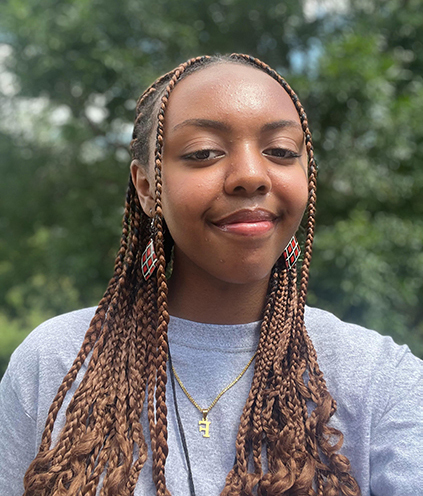
|
Eyerusalem Abebaw: Eyerusalem graduated from Macalester College with a Bachelor’s degree in Neuroscience and minors in Biology and Psychology. During her undergraduate career, she conducted cognitive neuroscience research in the Burgund Lab at Macalester. She is interested in researching the neurobiology of psychiatric disorders as well as developing and improving treatment options. She is passionate about improving mental health outcomes among underserved communities and youth and increasing access to proper healthcare. |
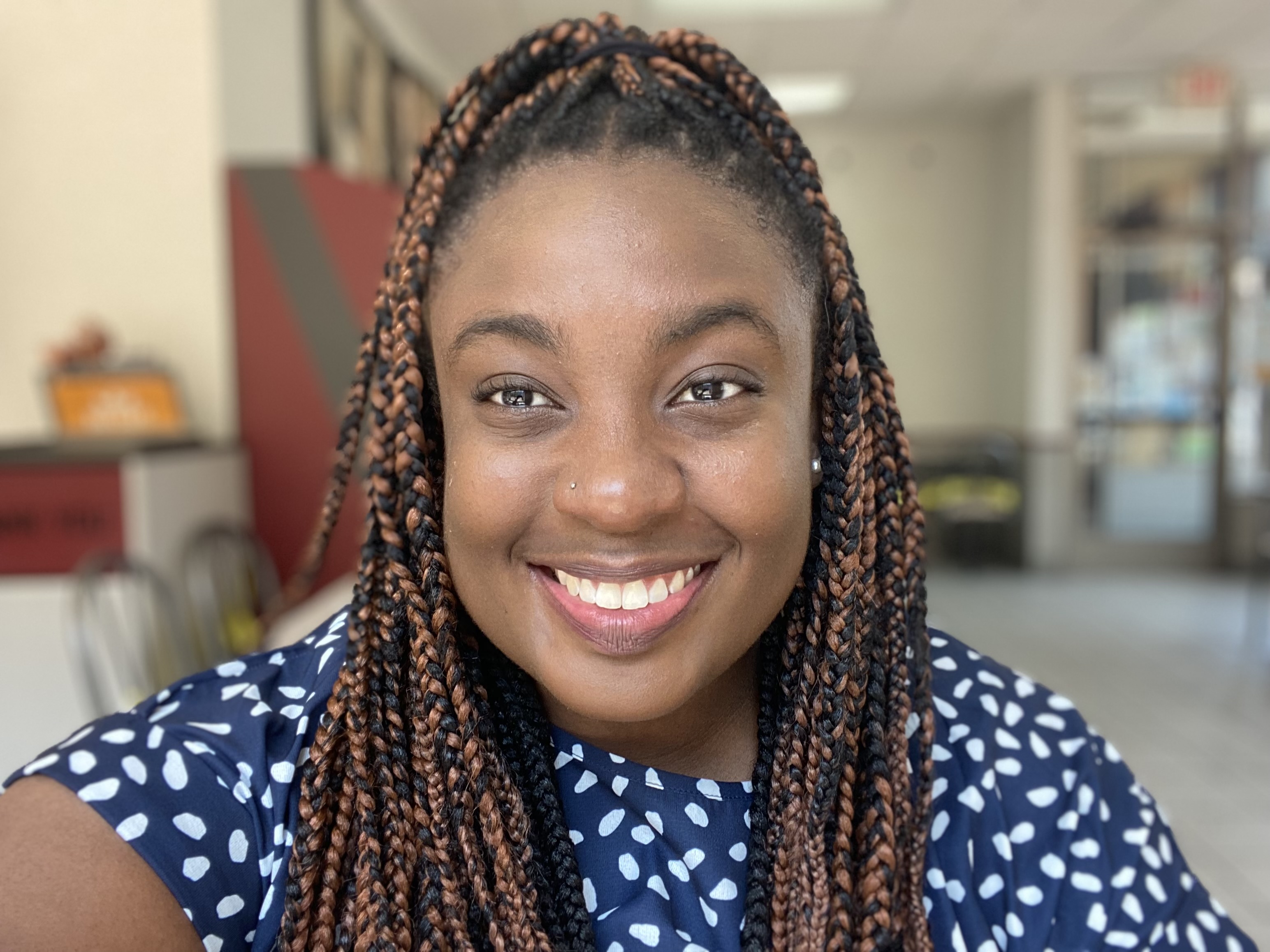
|
Christie L. Alexandre: Christie L. Alexandre obtained her bachelor of Sciences at the University of the Ozarks in May 2021. She majored in Biology and minored in Chemistry, Philosophy, and Business Administration. Having discovered a particular interest in Neurosciences during her last year of college, she decided to join the MINDS post-baccalaureate program at the University of Minnesota. Through this program, she was hired as a psychometrist in the Vinogradov lab. Christie would like to later obtain her Ph.D. in Clinical Neuropsychology. |
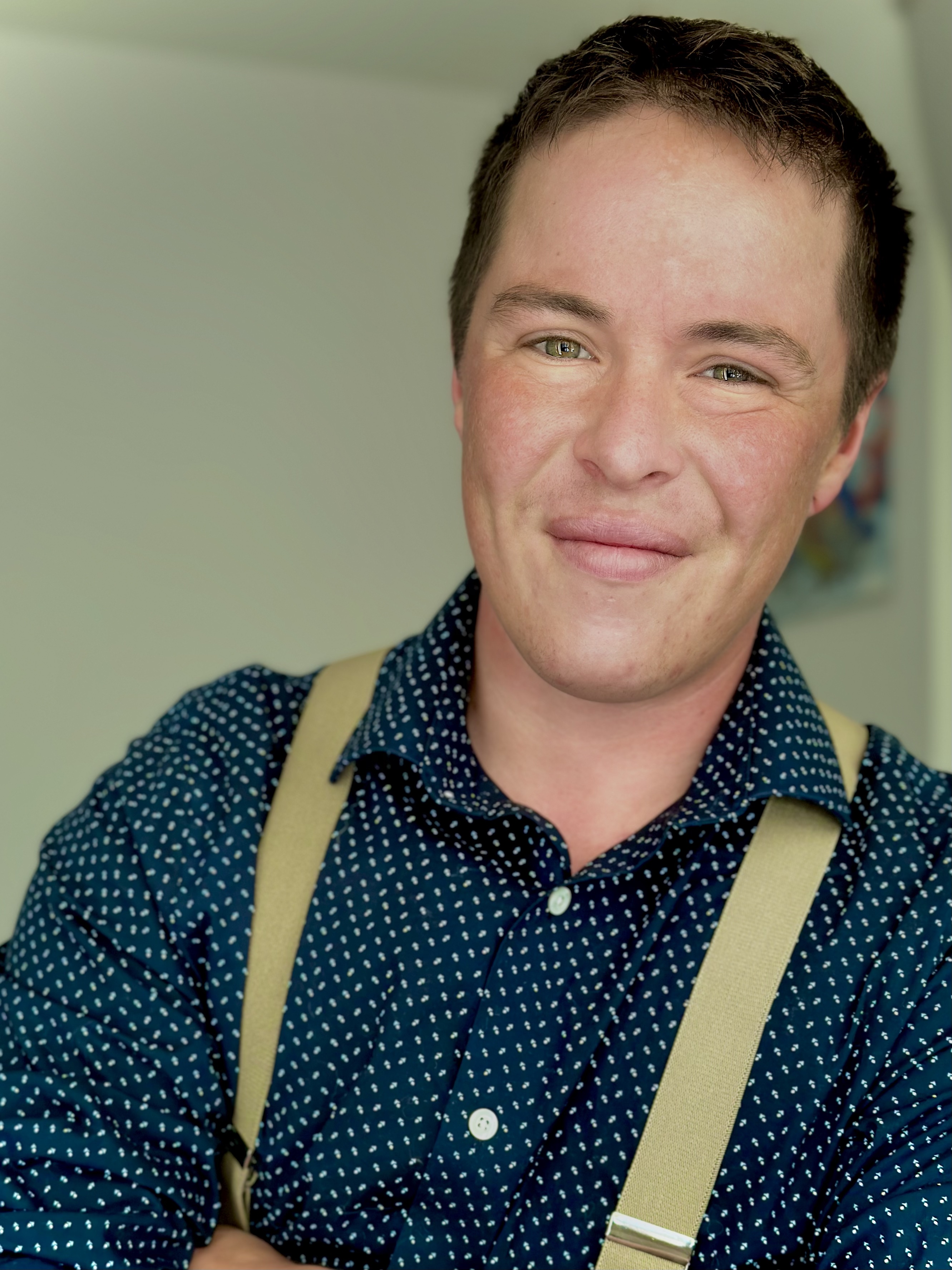
|
Kasey Bertelsen: Kasey is a first year MINDS Scholar. He graduated from Bemidji State University in Spring, 2023, earning his bachelor of science degree in Psychology. During his senior year, he developed an interest and passion for neuroscience. Key areas of interest include impulsivity and addiction and potential links between the mesolimbic pathways and the gut/ gut-microbiota axis. This interest includes the relationship between microbes with sugar affinity and endogenous counter-regulatory hormones as well as microbial capacity to produce exogenic neurotransmitters. Despite years of research supporting the role of exogenous neurotransmitters, diet, and stress as influencing mental health and overall wellness, he believes this is an understudied area that holds the potential to illuminate new modalities of both treatment and prevention for substance use disorders and other areas of reward-related addiction, such as binge-eating disorder and even media use disorders such as internet/gaming addictions. He hopes to develop, refine and expand his skills in research methods and experimental design to one day pursue a PhD in neuroscience. |
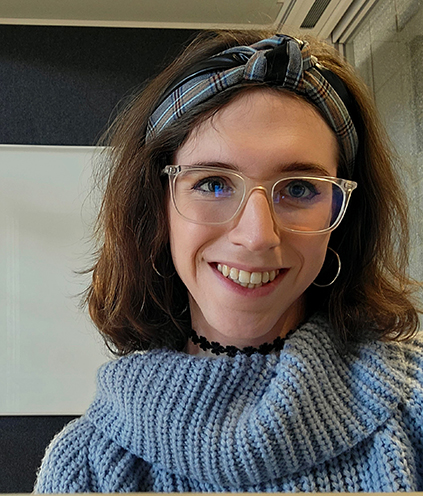
|
Nicole Payne: Nicole obtained her Bachelor’s of Science at Minnesota State University with a major in Psychology and a minor in Creative Writing. Neuroscience became a passion of Nicole’s in her Sophomore year and she continued to pursue it in the rest of her undergraduate coursework and research with a particular emphasis on psycho/neuropharmacology as well as drug and addiction studies. She has decided to join the University of Minnesota’s MINDS post baccalaureate program to explore these interests further and plans to utilize these experiences to apply to a PhD program in the field of Neuroscience. Some of her hobbies include writing poetry, singing and bicycling. |
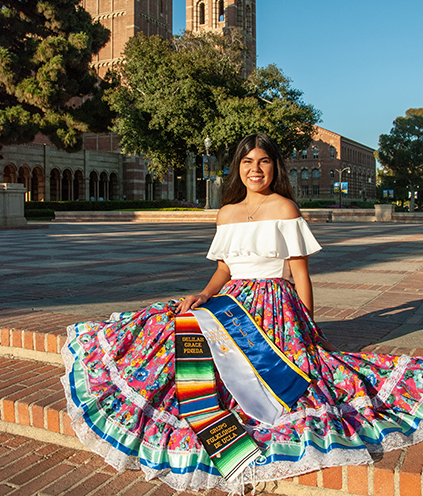
|
Delilah Pineda: Delilah graduated from the University of California, Los Angeles (UCLA) with a Bachelor of Science degree in Neuroscience and a minor in Chicana/o and Latin American Studies. During her undergraduate career, she researched the retinal eccentricity dependance of complex stimuli as a member of the Elegant Mind Club at UCLA. She also spent her free time as a community member of Grupo Folklorico de UCLA. Her passion lies in connecting neuroscience research with community outreach. Delilah's goal is to foster understanding of the functions of the brain and remedy afflictions that affect others. She hopes to achieve this as a MINDS Scholar and future neuroscience Ph.D. candidate. |
MINDs Alumni
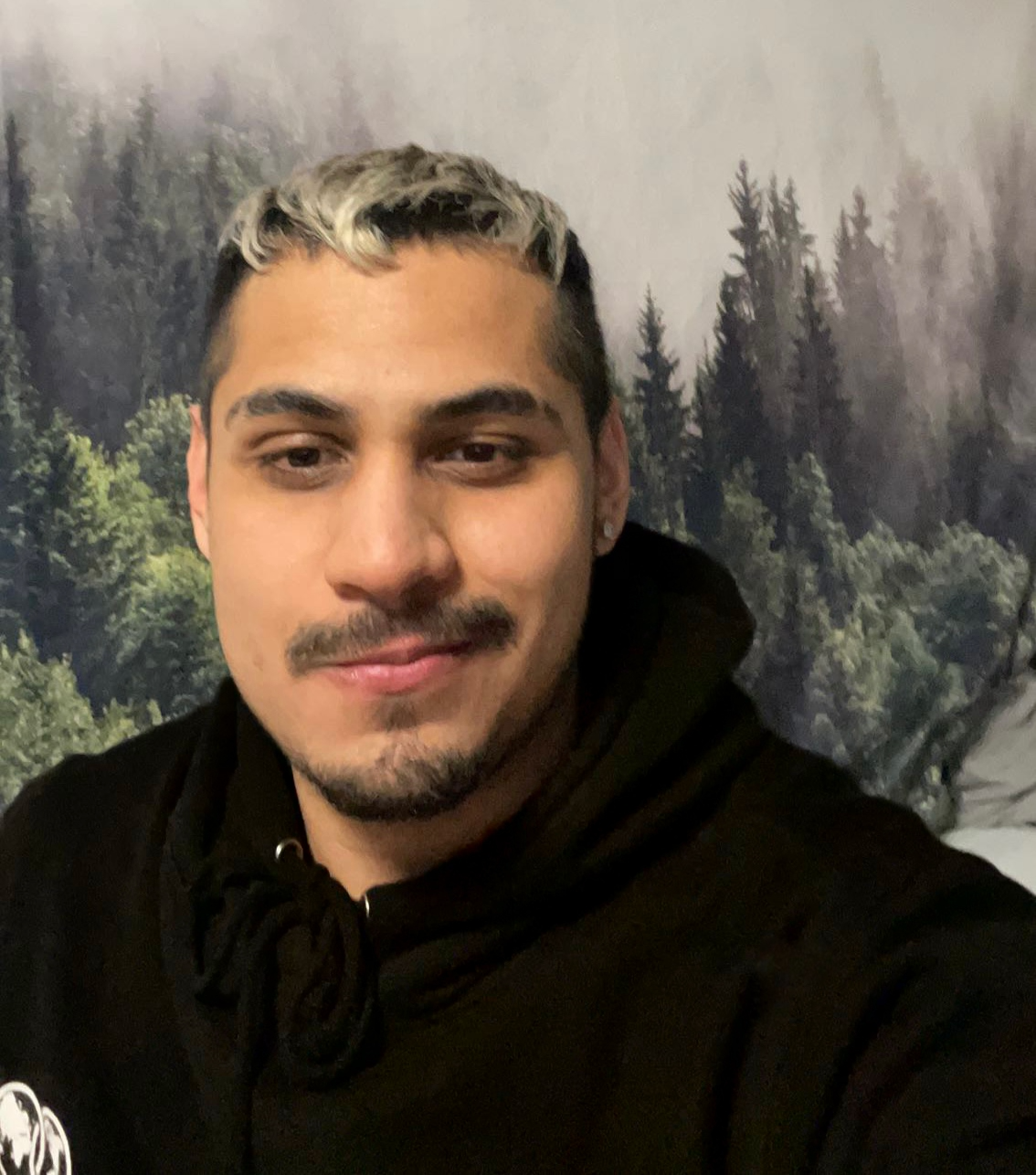
|
Fernando Aguilar Ortega: Fernando Aguilar Ortega graduated in 2022 with a bachelor’s degree of arts double majoring in Psychology and Biology with a Neuroscience concentration from St. Olaf College. His research goal is to understand the neuroscience of neuropsychiatric disorders and explore the complex brain circuitry. As a MINDS scholar, Fernando is working on mapping the structural, functional, and anatomical connectivity of the posteromedial cortex in humans using non-human primates at the Heilbronner Lab. He was accepted to continue this research as a graduate student in the neuroscience PhD program at Baylor College of Medicine starting Fall 2024. |
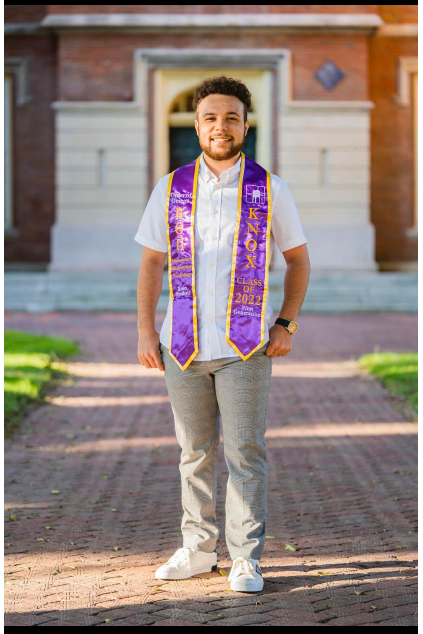
|
John Brent IV: John Brent IV (he/him) completed his B.S. in Neuroscience at Knox College in 2022, joined MINDS shortly after graduating, and completed two years of post-baccalaureate research in Dr. Kevin Wickman’s lab in the Department of Pharmacology. As a MIND Scholar, John led a project which established a novel dual viral approach to optogenetic intracranial self-stimulation in wild-type mice, in addition to receiving an “Outstanding Poster Presentation” award at the ABRCMS conference in 2022. His current research interests are in elucidating alternative uses for existing drugs and optimizing pharmacological agents for therapeutic use. John will be pursuing his Doctor of Pharmacy (PharmD) degree at the University of Minnesota College of Pharmacy - Twin Cities starting in the fall of 2024. |
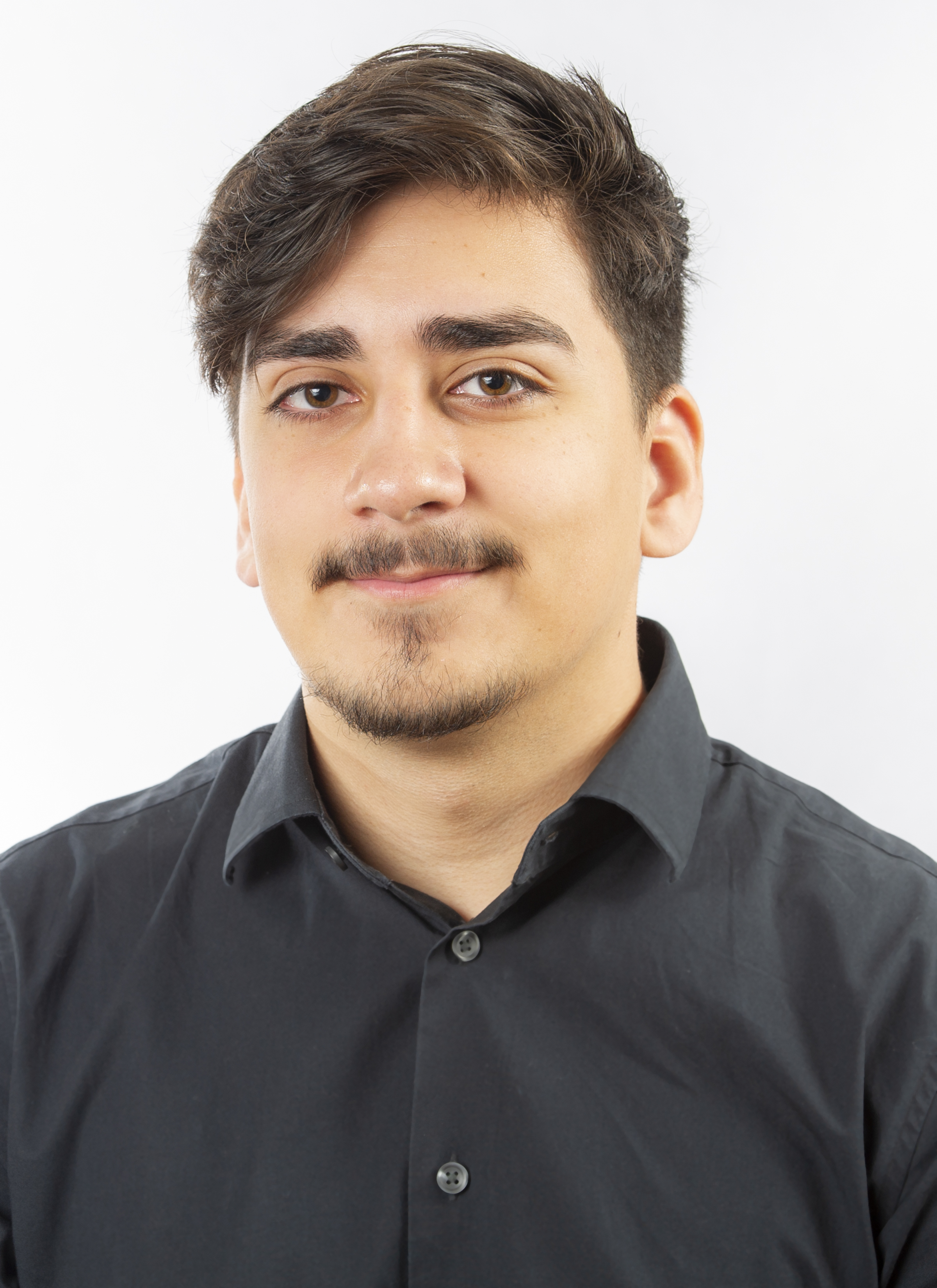
|
Osmar Del Rio: Osmar Del Rio (he/him) graduated from Macalester College in 2021 with a B.A. in Biology and minors in Data Science and Spanish. In joining the Sederberg lab, he discovered his passion for computational neuroscience. He has spent the past three years building statistical and mechanistic models of inhibitory neuronal populations in the primary visual cortex of mice and ferrets alongside Drs. Audrey Sederberg and Cheryl Olman. This experience helped refine his research interest in building statistical and computational tools to unveil neural mechanisms of cognitive dysfunction associated with neuropsychiatric disorders. In addition to the faculty and research, Osmar was drawn to MINDS given his passions for science communication, mentorship, and DEI-related work to promote equitable access to STEM education and foster inclusivity for marginalized scientists in academia. In Summer 2024, Osmar will begin at the University of Minnesota as a PhD student in the Graduate Program of Neuroscience. He looks forward to the opportunity to continue conducting research as well as supporting DEI efforts both on-campus and beyond. |
|
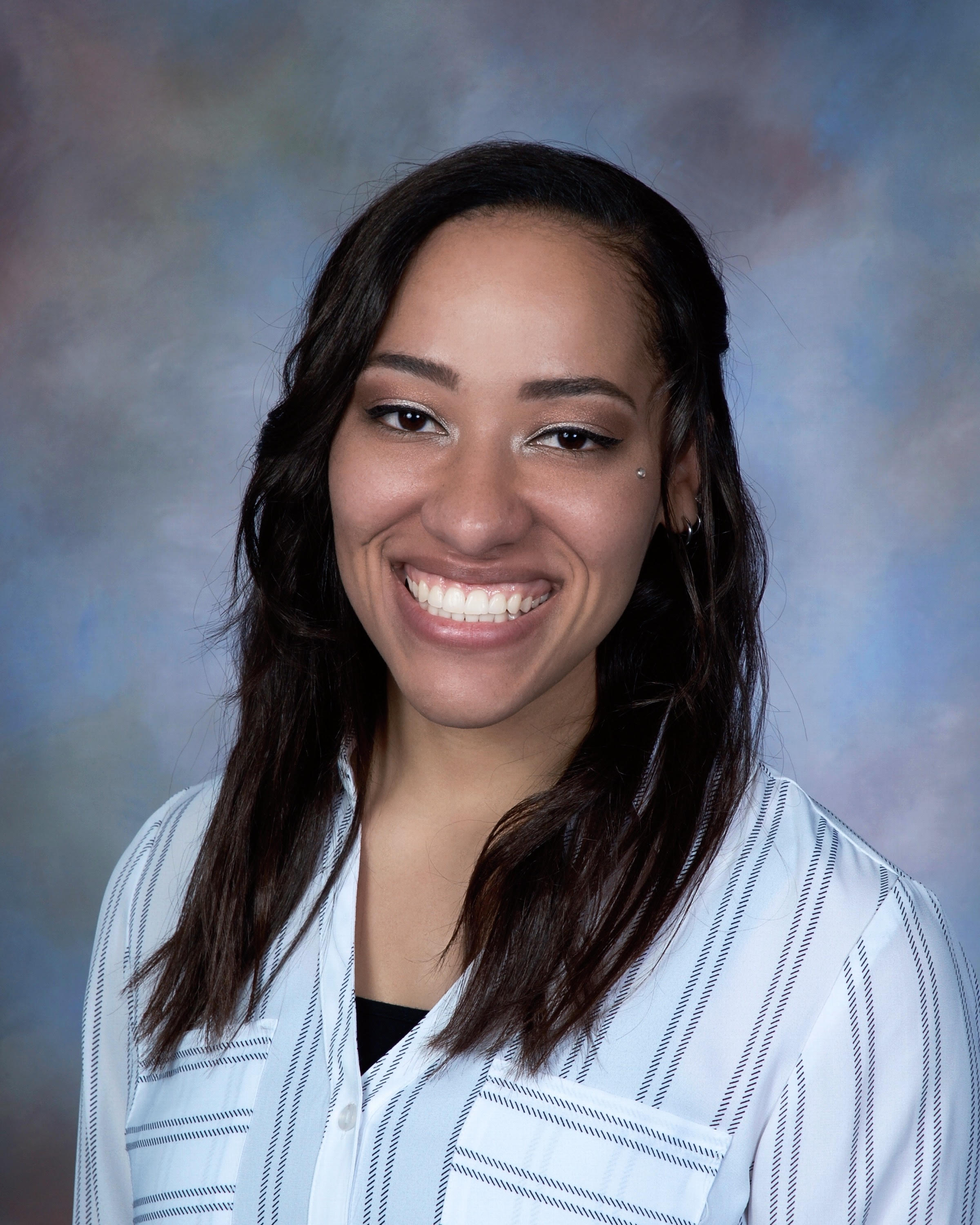
|
Michaelle DiMaggio-Potter: |
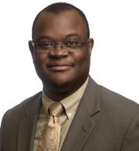
|
Olalekan “Lukman” Ganiyu: Lukman received a bachelor’s degree in Physical Therapy in Nigeria before immigrating to the United States in 1996 and completed a master’s degree and a clinical doctorate in physical therapy in the United States. He has been a physical therapist for about 30 years with an orthopaedic rehab focus. He was a core faculty member at the University of St. Augustine for Health Sciences and taught in the Doctor of Physical Therapy program. Lukman joined MINDS from 2021-2022, and is now pursuing his PhD in Physical Therapy at Nova Southeastern University. |

|
Dante Rogers: Dante Rogers (he/him) completed his B.S. in Psychology and minors in Neuroscience and Communication at the University of Minnesota Twin-Cities in 2021. After graduating, Dante joined the MINDS program and completed two years of post-baccalaureate research in Dr. Rene Pierpont’s MIND Lab in the Department of Pediatric Neuropsychology. While working with Dr. Pierpont, Dante studied medication efficacy, behavioral topographies, genotype-phenotype associations, seizure semiology’s, and long-term neurocognitive outcomes in children with rare neurogenetic disorders. His work over the past three years, paired with his diverse array of research experiences during his undergraduate studies, have cultivated his interests in understanding genetic, neurologic, and cognitive markers associated with neurodevelopmental disorders in children to improve early identification, prognosis, and developmental outcomes. Dante will be pursuing his Doctorate of Philosophy (PhD) in Clinical Psychology at Northwestern University’s Feinburg School of Medicine under the mentorship of Dr. Molly Losh starting Fall 2024. |
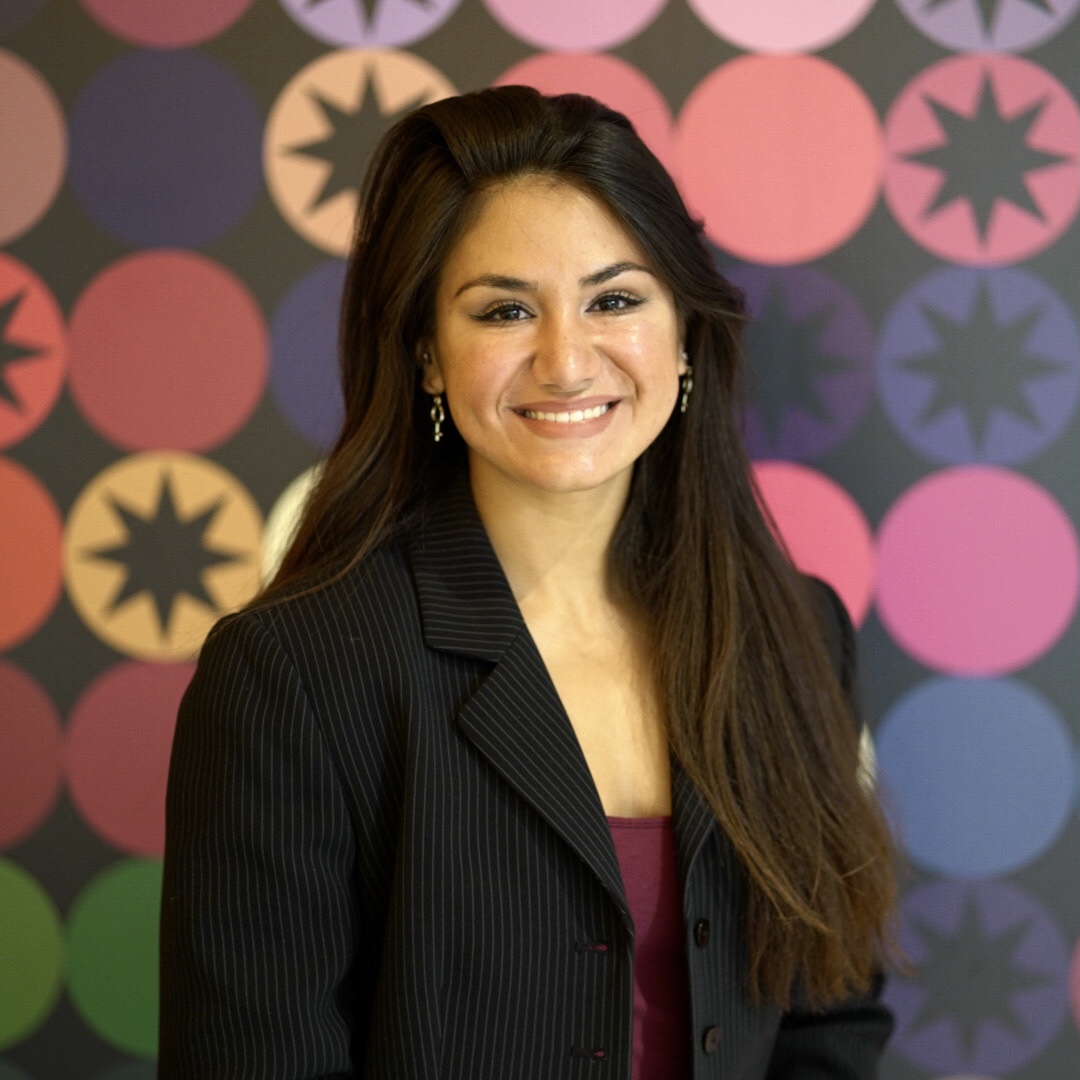
|
Parsa Taheri: Parsa Taheri graduated with her bachelor's degree in Psychology from Barnard College of Columbia University in 2019, and then gained experience as a research assistant in psychology labs before joining MINDS from 2021-2022. Her research interests include the neural and socio-emotional correlates of resilience from early life stress in vulnerable youth. Parsa is now pursuing her PhD in Developmental, Cognitive, & Behavioral Neuroscience at the University of Houston. |
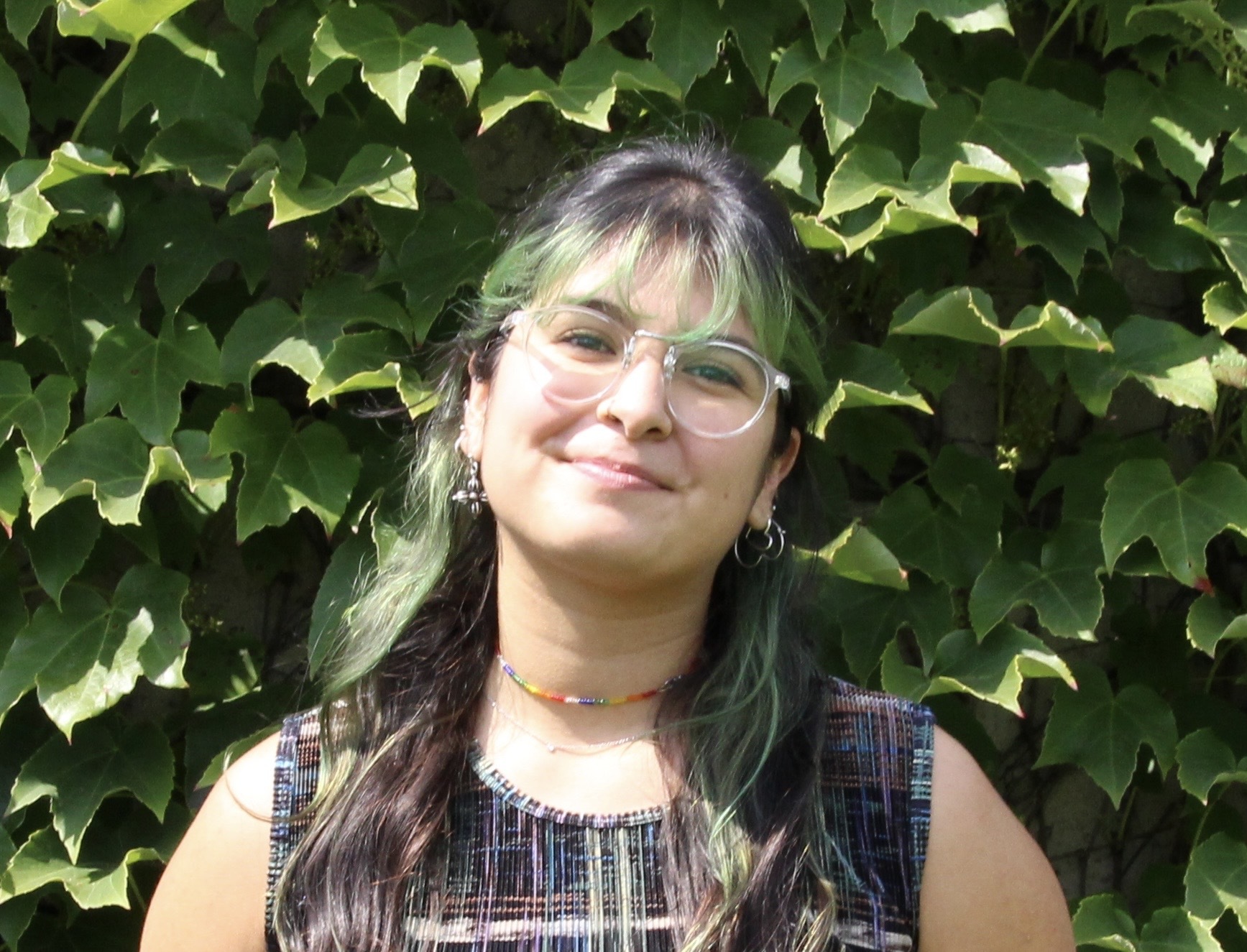
|
Angelica Velosa: Throughout her time conducting neuroscience research, Angelica Velosa has been able to refine her research interests and develop a passion for the neuroscience of learning and cognition. She also has a strong passion in her heart for applying her understanding of neuroscience to education. Angelica decided to join the MINDS post-baccalaureate program due to its research - through faculty and its commitment to diversity. She is currently working as a research technician at the Grissom lab and studying the importance of NMDA receptors for complex decision making. Here she has spent time developing experimental design skills and science communication skills to pursue a neuroscience PhD. Angelica is delighted to continue her studies at the University of Minnesota’s Graduate Program in Neuroscience starting Fall 2024. |
MINDs Financial Support and Partners
Department of Neuroscience
MnDRIVE Brain Conditions
Center for Neuroplasticity Research in Support of Mental Health (NeuroPRSMH)
Institute for Translational Neuroscience
Masonic Institute for the Developing Brain
Medical Discovery Team on Addiction
Medical Discovery Team on Optical Imaging and Brain Science